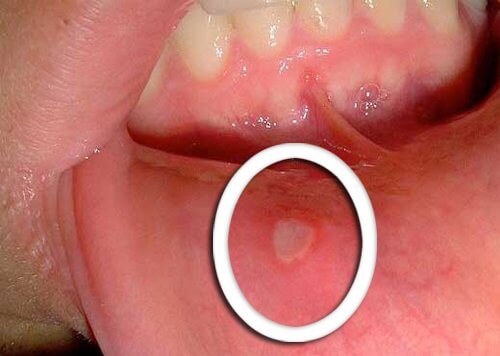Oropharyngeal Cancer Symptoms You Need To Know


Written and verified by psychologist Valeria Sabater
Oropharyngeal cancer isn’t just associated with tobacco. This disease may primarily affect the mouth, tongue, palate and pharynx is also associated with solar light and the human papillomavirus virus (HPV).
This kind of cancer doesn’t not have a high rate of incidence and mostly occurs in those over 50.
The rate of incidence of this cancer also increases as life expectancies rise. In general, it’s is more common among men.
It’s important to recognize symptoms early, especially because you can confuse them with herpes, canker sores, or minor oral inflammation that you might have suffered before.
The problem is more complex in non-smokers. When we talk about oropharyngeal cancer, most people think of smokers.
“If I don’t smoke, I’m not at risk of developing it.”
However, whether we smoke or not, all of us have the possibility of contracting this illness.
Therefore, it’s important to have the right information that’ll allow you to spot the symptoms in the earliest phases.
Oropharyngeal cancer symptoms
The majority of oropharyngeal cancers develop in carcinomas.
Carcinomas are a specific kind of cell in the form of thin, flat scales. They are not simply sores.
It’s normal for people with a weak immune system, accustomed to oral infections, sores, or bleeding gums not to notice the symptoms associated with this illness.
If your doctor performs a comprehensive examination of the area around the tongue and pharynx, he should be able to detect it.
Later, a biopsy will confirm whether this oncological illness is present or not.
Let’s look at the main symptoms.
Physical changes in the mouth

- The earliest symptom of oropharyngeal cancer are little sores that do not heal.
- Red or white blotches typically appear on the tongue, the gums, or the lips.
- Be aware of any unusual changes that don’t improve in a few days and bring them to the attention of your doctor.
Minor pain that gets worse over time
Another of the main characteristics of oropharyngeal cancer is pain upon chewing or swallowing. People who use dentures will notice right away that their prosthesis bothers them and causes bleeding or pain. Here are some specific signs that something may be wrong:
- Talking is suddenly painful.
- Moving the tongue or even brushing the jaw will cause persistent pain.
- The pain may extend to the ears.
Discover Natural Remedies for Pharyngitis
The sensation of having a “knot” in your throat
Difficulty swallowing, regular irritation in the tonsils, or coughing of blood are things we should never ignore.
- However, it’s worth noting that these annoyances do not necessarily indicate a serious problem. It may even just be a benign tumor in the pharynx area.
- Early diagnosis is best. That means you should be alert to such changes.
Unexplained weight loss

When you have oropharyngeal cancer, it weakens your immune system, which might lead to weight loss.
Can oropharyngeal cancer be prevented?
As we often say on this site, no disease is 100% preventable.
You can, however, control factors that can reduce your risk of getting it.
This type of cancer is associated with:
- Tobacco
- Alcohol
- Human Papillomavirus (HPV). The type associated with throat cancer (including oropharyngeal cancer) is HPV 16.
- Ultraviolet light. Lip cancer, for example, is more common with people who work outside and are therefore more frequently exposed to sunlight.
- Poor diet or a weakened immune system.
- Genetic disorders like Fanconi anemia.

Since you now know the causal factors, it’s a good idea for you to pay attention to your lifestyle. Of course, that doesn’t mean you should become obsessive.
Even so, it’s always a good idea to quit smoking, eat a balanced diet, and use sun protection for the skin and lips.
It’s important for you not to be scared to get an early diagnosis. Don’t be afraid to consult your doctor, for example, so he can perform a simple examination.
Caution will be worth your efforts. Always remember that you shouldn’t postpone your healthcare.
This text is provided for informational purposes only and does not replace consultation with a professional. If in doubt, consult your specialist.








